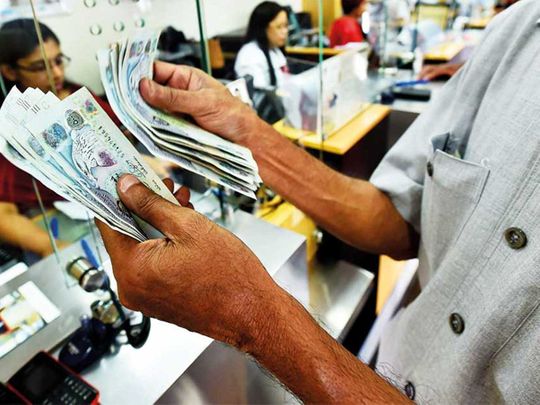
Thiruvananthapuram: The US-China trade war, Brexit and the Iran issue may all be affecting non-resident Keralites based around the world in different ways, but banking reports indicate that their remittances home continue to inch up.
According to the latest banking reports, quoting the State Level Bankers’ Committee, remittances have gone up 12 per cent in 2018-19, compared to the previous year’s figures.
Bank deposits in the state are now estimated at Rs4.93 trillion (Dh261.5 billion), of which Rs1.90 trillion are NRI deposits. In other words, nearly 39 per cent of the deposits in the state’s banks are NRI remittances.
The healthy NRI deposits present a picture in contrast to the Kerala government finances, which are in a precarious state. The cash crunch of the state government has been made more severe by the federal government’s decision to effect a Rs60 billion cut in its annual borrowing limit for the current financial year.
Kerala’s public finances are particularly stretched because of the widespread damage caused to infrastructure by the devastating floods of August 2018.
The report of the rise in NRI deposits in Kerala comes on the heels of the revelation that money parked by Indian individuals and enterprises in Swiss banks, including through India-based branches, have fallen by nearly 6 per cent in 2018 to 955 million Swiss francs, or about Rs67.57 billion.
Part of the reasons for the increase in remittance to Kerala is attributed to the weakening of the Indian rupee during 2018.
Kerala is estimated to receive roughly Rs1 trillion of NRI remittances annually. In previous decades, a substantial amount of this went into construction of palatial houses and buying up land. In recent years, NRIs have invested in apartments.
However, since prime minister Narendra Modi’s decision to demonetise India’s currency three years ago, investments in realty have fallen both by NRIs and local residents.












